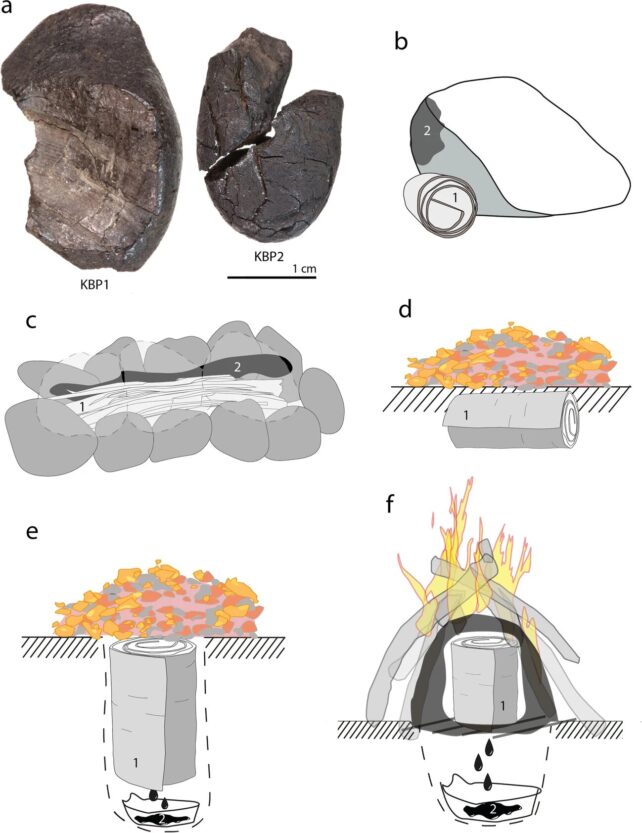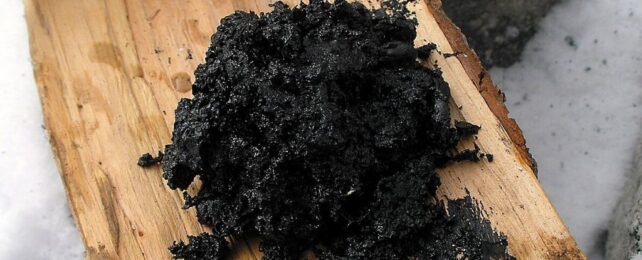The first synthetic substance ever brewed on planet Earth may not have been a product of our own species but was concocted by a close relative as far back as around 200,000 years ago.
Researchers from the University of Tübingen and the State Museum of Prehistory in Germany and Strasbourg University in France recently conducted a complex chemical analysis on Neanderthal artifacts made using birch tar, concluding how it was extracted wasn't incidental.
Birch tar is a sticky black goo used since ancient times for its various adhesive, water-repellent, and even antimicrobial properties. Some of the first early humans who lived in Europe used it to bind parts of their tools together.
The material can be extracted from birch bark using heat, but scientists disagree on whether Neanderthals were purposefully producing the tar or if it was simply a consequence of enjoying a warm fire.
Some think of black tar as a happy accident that Neanderthals simply scraped from surrounding rocks after burning birch bark. Others think the sticky, water-resistant material was carefully crafted in an underground oven long before our species learned the trick.
This might seem like a pedantic squabble, but intentionally distilling useful substances from raw materials is commonly assumed to be another activity that sets human intelligence apart from other species.
Based on the analysis of two pieces of birch tar found at an archaeological site in Germany, this latest study argues that "birch tar may document advanced technology, forward planning, and cultural capacity in Neanderthals."
An analysis of the artifacts' chemistry suggests they were deprived of oxygen during their formation. This low-oxygen profile could, theoretically, be achieved in a few ways, so researchers tested the various methods.
Two of the methods burned birch bark above ground, while three involved an underground oven of sorts.
Burning birch bark above ground allowed the tar to condense on the tops of stones in the open air or a dome of sticks. The below-ground methods essentially meant burying rolled birch bark under a fire.

Ultimately, only birch tar made below ground carried the same chemical signature as the ancient artifacts found in Germany.
The findings suggest Neanderthal tar is not the fortuitous "result of unintentional processes in open-air fires" but a complex underground technique that had to be carefully planned, as it could not be monitored once it was buried.
Such a complex setup would have required a specific recipe to be followed precisely. Researchers say the practice was probably invented through trial and error, with gradual improvements adding up over time.
If Neanderthals really were making tar as far back as 200,000 years, that beats any evidence of Homo sapiens making tar by 100,000 years.
"Thus," researchers write, "what we show here for the first time is that Neanderthals invented and refined a transformative technique, most likely independently of the influence from Homo sapiens."
Previous discoveries have shown that Neanderthals had complex diets involving multiple food preparation steps. Their use of fire, however, may not have been confined to heating or cooking.
The intelligence of our earlier cousins should not be underestimated any longer.
The study was published in Archaeological and Anthropological Sciences.
